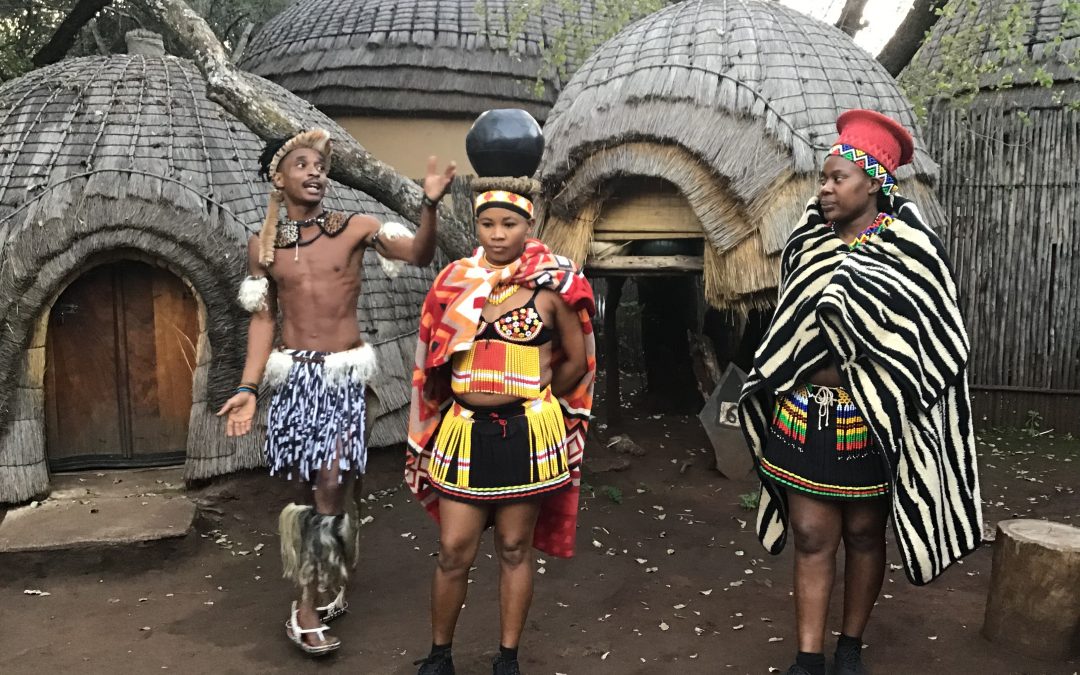After a busy day yesterday today was off to a much slower start with a very leisurely brunch at one of my favourite places in Johannesburg, The Olive and Plate Restaurant in the grounds of Wits University. The Cape Dutch builders remind me of Cape Town as this style of building is more commonly found in the Cape. The majority of the restaurant is outdoors and the setting just lends itself to a three hour catchup with friends or family. The food is excellent and I can think of no better way to spend a quiet Saturday morning than sitting in the sun at this great venue.
This time of year in Johannesburg makes for a wonderful holiday, the autumn weather brings with it cloudless blue skies and daytime temperatures of around 24 degrees, although it always feels much warmer in the sun due to the lack of clouds. The nights are a bit cooler and you do need a jacket once the sun has set.
As it was such a beautiful day we decided to drive some 40 minutes out of Johannesburg to visit a cultural village called Lesedi. This is a tourist attraction and tries to give a authentic overview of the different ethnic groups which make up South Africa. The complex is set up as a number of different villages scatter throughout the area including those of the Zulu, Xhosa, Pedi, Ndebele and Basotho tribes. The visit starts with a short film on the history of South Africa identifying the original inhabitants and tracking the migration of different groups from the North over the centuries, it includes the colonisation of the Cape right up to modern day South African. Our guide then took our group on a walk through the villages where you cannot help but notice the difference in dress, the variation in the huts and the slight differences in cultural norms. In Africa a man’s wealth is measured in the number of cows he owns and the more cows he has the more wives he can have. The cost of a wife is between 10 and 15 cows depending on your cultural group.
Polygamy is lawful in South Africa under certain conditions and the former President Jacob Zuma had six wives during his term as President. The custom of paying for a wife is known as Lobola and it is an age-old tradition in Africa and there are a number of arguments taking place currently about this issue. Some people believe that paying for a wife is wrong in this day and age while others see the loss of yet another African tradition in this modern world. The debate continues.
Our tour finished with a dance performance followed by dinner. The group of dancers and singers treated us to a wonderful energetic show and the dinner consisting of a number of local dishes including ostrich and crocodile was good. Our afternoon at Lesedi was a wonderful experience and a great way of bringing understanding of the different cultures that make up South Africa to a group of tourists.


What a wonderful adventure. I hope Margaret didn’t get hitched while there. Please tell her we miss her.
Julia